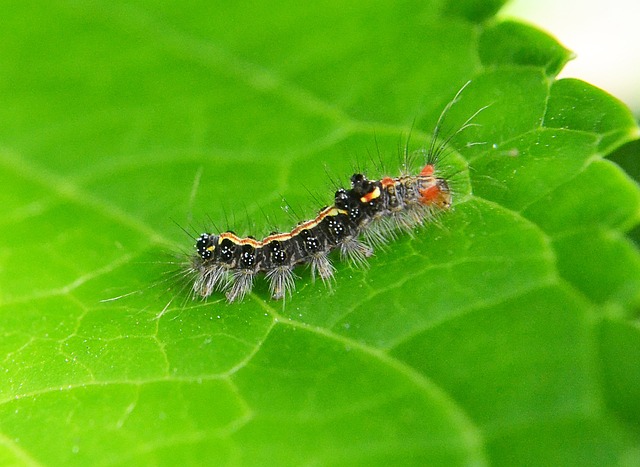This text explores effective pest control for ants, emphasizing understanding ant behaviors as a crucial first step. It highlights specialized roles within ant colonies, their communication via pheromones, and how this knowledge aids in pinpointing nests. The paragraph outlines strategies like using insecticides, disrupting trails, and placing bait stations. It also discusses the importance of identifying entry points, sealing them, and addressing attractive conditions. Natural repellents, such as essential oils and borax mixtures, are promoted as eco-friendly alternatives to chemical pesticides. The text compares chemical vs organic methods, emphasizing safety concerns with chemicals and the environmental benefits of natural solutions. Additionally, it provides long-term strategies for prevention, including regular inspections and maintaining a clean environment, to significantly reduce future ant infestations.
Looking to reclaim your space from persistent ant invaders? Effective ant extermination requires understanding their behaviors and identifying entry points. This comprehensive guide delves into proven strategies, offering both DIY solutions and professional insights. From natural repellents to targeted chemical and organic treatments, we equip you with the knowledge to combat infestations. Learn when to enlist pest control experts and discover long-term prevention techniques for lasting ant management—conquer your home’s unwelcome guests once and for all.
Understanding Ant Behaviors: The Key to Effective Extermination
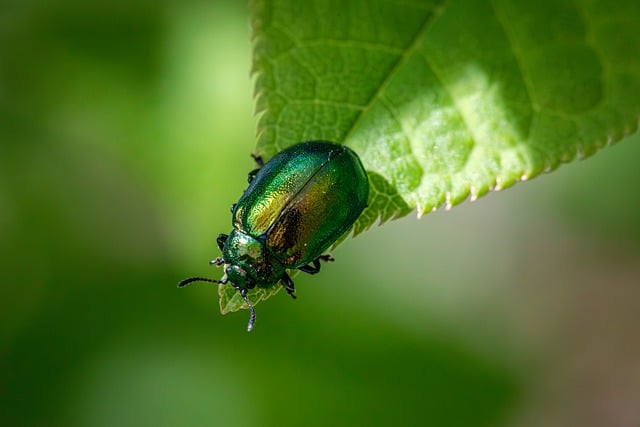
Understanding ant behaviors is a crucial step in effective extermination, as it allows for targeted and efficient pest control for ants. Ants are highly organized social insects with distinct roles within their colonies, such as workers, soldiers, and queens. They leave chemical trails, known as pheromones, to communicate with one another and find food sources. By recognizing these behaviors, pest control experts can identify ant nests and implement tailored strategies.
This knowledge enables the use of appropriate insecticides and non-toxic methods that disrupt their communication and foraging patterns. For instance, disrupting ant trails or using bait stations strategically placed near nests can be highly effective in controlling ant populations. Understanding ant behaviors also helps in preventing future infestations by addressing underlying conditions that attract ants to homes, such as food sources and moisture issues.
Identifying Common Ant Entry Points in Your Home
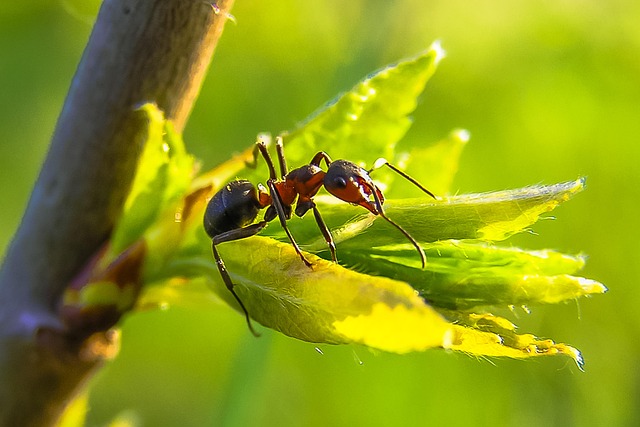
Identifying where ants enter your home is a crucial first step in effective pest control for ants. These tiny invaders often find their way in through cracks and crevices, small gaps around doors and windows, or even hidden openings behind appliances and baseboards. By carefully observing ant activity, you can pinpoint these entry points. Look for trails left by worker ants, which can lead you to their point of origin. Once identified, sealing these entryways with caulk or weatherstripping can significantly hinder their access.
Regular inspections are key to maintaining a pest-free home. Check for any signs of ant infestation, such as small piles of sand-like waste or ant trails, especially after cleaning or during the warmer months when ants are most active. Addressing these issues promptly will prevent ants from establishing colonies and spreading throughout your space, making it easier to manage with professional pest control for ants services.
Natural Ant Repellents and DIY Solutions
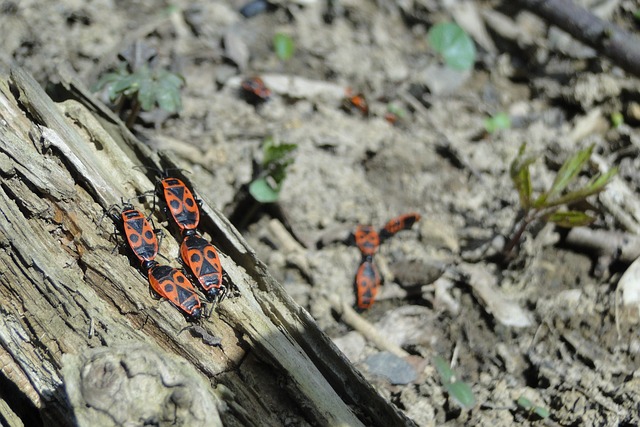
Many homeowners prefer natural ant repellent methods as an alternative to harsh chemicals for pest control for ants. Plants like citronella, lavender, and mint are known to deter ants due to their strong scents. You can plant these around your home or use essential oils extracted from them to create DIY solutions. For instance, mixing lemon essential oil with water and spraying it in entry points can help keep ants at bay.
Another effective DIY solution is creating a natural barrier using borax and sugar. Ants are attracted to the sweet substance but will also ingest borax, which acts as a slow-acting poison. By placing this mixture in areas where ants are active, you can disrupt their trails and reduce their population over time. These natural methods offer a safer and more eco-friendly approach to pest control for ants while still being highly effective.
Professional Pest Control: When and Why to Hire Experts

When dealing with an ant infestation, many homeowners might consider tackling the issue themselves using over-the-counter pesticides. However, professional pest control services offer a more effective and lasting solution for severe or recurring ant problems. Hiring experts in ant extermination is particularly crucial when the infestation has spread beyond manageable levels, or if you have tried DIY methods without success.
Professional exterminators possess specialized knowledge and advanced tools to accurately identify ant species and target their specific behaviors. They employ eco-friendly and safe techniques that are designed to eliminate ants entirely while minimizing potential risks to your family and pets. Moreover, a professional pest controller can provide valuable advice on preventing future infestations by sealing entry points and addressing underlying issues that attract ants to your property. This long-term approach to ant control is often more cost-effective than repeated DIY attempts.
Targeted Ant Treatment Methods: Chemical vs. Organic Approaches
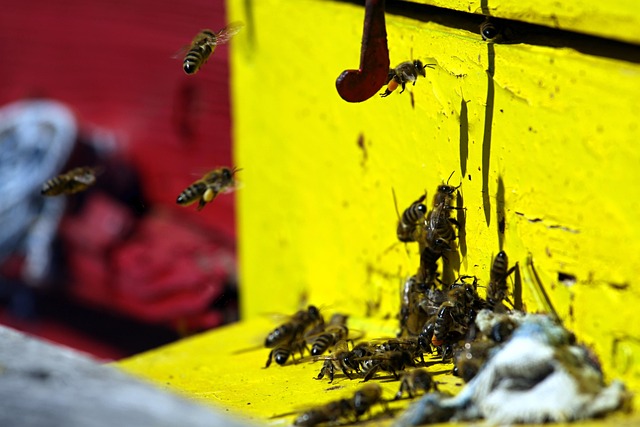
When it comes to targeted ant extermination, understanding the differences between chemical and organic approaches is key in choosing the best pest control for ants. Chemical treatments have long been the go-to method, relying on synthetic pesticides that are highly effective but also pose potential risks to human health and the environment. These chemicals can be fast-acting and eliminate ant colonies swiftly, making them appealing for severe infestations.
Organic alternatives, on the other hand, offer a more eco-friendly and safer approach to pest control for ants. These methods utilize natural ingredients like essential oils, boric acid, or chalk to repel or eliminate ants without harming non-target species. While organic treatments may take longer to show results, they are ideal for those prioritizing environmental safety and avoiding exposure to toxic chemicals. This method is especially beneficial in homes with children, pets, or near water sources.
Preventing Future Ant Infestations: Long-Term Strategies

After successfully exterminating an ant infestation, preventing future invasions is key. Long-term strategies for pest control for ants involve a multifaceted approach. First, identify and seal any entry points into your home or property, such as cracks in walls, doorsills, or windows. Regularly clean and wipe down surfaces to remove any trace of food or moisture that might attract ants. Additionally, maintaining a clean lawn and removing potential nesting sites like piles of wood or debris can significantly deter ants from returning.
Implementing natural repellents, such as lemon juice, vinegar, or peppermint oil, around the perimeter of your home can also serve as effective pest control for ants. Regular inspections are crucial to catch any early signs of an impending infestation. By staying proactive and employing these long-term strategies, you can significantly reduce the risk of future ant infestations, ensuring a quieter and more comfortable living environment.
